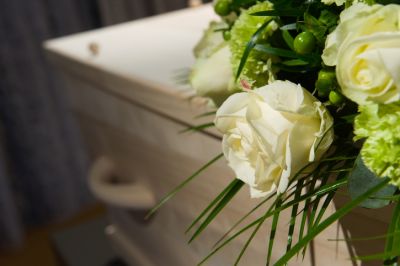 Many end-of-life traditions in the Western world are based on Christian customs. From the songs that are sung to their orders of services, funerals have been typically structured from Christian worship rituals and conducted by clergy. For an atheist, a humanist or individual without strong beliefs rooted in any specific religion, planning final arrangements may prove to be somewhat difficult. Thankfully, there are options for people who want to be memorialized outside of a religious context.
Many end-of-life traditions in the Western world are based on Christian customs. From the songs that are sung to their orders of services, funerals have been typically structured from Christian worship rituals and conducted by clergy. For an atheist, a humanist or individual without strong beliefs rooted in any specific religion, planning final arrangements may prove to be somewhat difficult. Thankfully, there are options for people who want to be memorialized outside of a religious context.
With or Without Religion, You Still Need a Program
Just as weddings need an order of events, funerals require their own structure to accomplish the goal of commemorating the deceased and helping the living move one step closer to attaining closure. Atheist, humanist and non-religious funerals may share some key similarities:
- There are usually no references to an afterlife.
- Religious hymns are passed up in favor of secular songs.
- Poems or secular readings are included instead of Scripture passages.
- The program may include “meditations” in lieu of prayers.
To help the service proceed in an orderly fashion, a program of some sort will need to be constructed. Humanists UK offers a sample outline from which you can borrow and adapt. You’ll need some introductory music and welcome remarks, after which readings, reflections and tribute to the departed can be included. The final portion of the program will generally consist of a “committal,” during which the closing of the curtain or the lowering of the casket into the ground can signal that the services are about to end. Finally, a few closing remarks should be offered, after which the last song is played.
Who Officiates at a Non-Religious Funeral?
While clergy are typically asked to preside over religious funerals, deciding who should officiate at an atheist or humanist memorial can get a bit tricky. In making this decision, you need to lean heavily on the deceased’s last wishes. Some humanist organizations have professional funeral and wedding celebrants in their ranks, and these individuals may be ordained as clergy by their local jurisdictions. An ordained Universal Life Church minister might also be an appropriate choice, and some will select progressive Christian or Unitarian Universalist clergy as alternatives to traditional ministers. Although there usually aren’t strict regulations on who may conduct a funeral or memorial service, you may want to check your local laws to be certain.
Attaining Closure, or, What Happens When They Die
If you have strong religious beliefs, you may wonder what an atheist, humanist or non-religious loved one might conjecture about death. Although some individuals don’t give much thought to the question, it’s important to remember that these ideas may vary widely. Some derive their concepts from the first law of thermodynamics, which details that energy can change form but is neither created nor destroyed and proposes that our essences somehow return to the universe. Others view it as “going dark,” stating that our existences simply come to an end. As Funeralwise’s guide to humanist customs explains, humanists tend to think that death clears the way for new life, and that the dead live on through memories and stories documented in our histories.
When you’re making arrangements for a loved one who doesn’t want a religious service, you need some helpful guidance to draft a program and commemorate the person according to his or her wishes. Many websites provide a basic structure you can follow when writing your event’s program, and you can also incorporate secular songs and readings. Moreover, you should be able to find a non-religious celebrant or open-minded clergy member in your area to officiate. By taking advantage of these resources, you can easily craft a funeral that’s devoid of religious traditions.
Add Your Comment